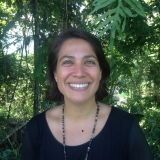This report provides findings based on the Costa Rican experiences that are beneficial for countries around the world implementing Payment for Ecosystem Services (PES) schemes. In this report, it is noted that from 2000 to 2010, over 5 million hectares of forest were lost per year globally, with the agricultural sector contributing to an estimated 80% of this loss. As forests are lost, the knock-on economic, environmental, and social benefits of ecosystem services provided by forests are lost as well (e.g. sequestrating carbon dioxide, regulating hydrological systems, hosting biodiversity, etc.). As a result, it is estimated that deforestation and forest degradation account for roughly 11% of total global greenhouse gas (GHG) emissions. This is a common occurrence especially in developing countries with high rates of population growth, where land is intertwined with livelihood, and governments are forced to make tough choices between competing land uses. Payment for ecosystem services (PES) is a powerful tool for providing financial incentives for ecosystem services that are not usually monetized and paid for in the traditional market. PES schemes internalize externalities by creating new marketplaces for ecosystem services. These schemes provide a new source of income for land management, restoration, conservation, and sustainable agricultural activities. Costa Rica’s PES program is globally recognized as an innovative blend of economic and regulatory instruments. This analytical report unpacks the lessons learned from the Costa Rican PES experience based on an in-depth analysis drawn out of Costa Rican national PES program. This report also addresses the conservation finance gap, describing changing landscape of finance and examining potential solutions, including strategies for attracting private sector investment
Bridging the Policy and Investment Gap for Payment for Ecosystem Services: Learning from the Costa Rican Experience and Roads Ahead
Country


